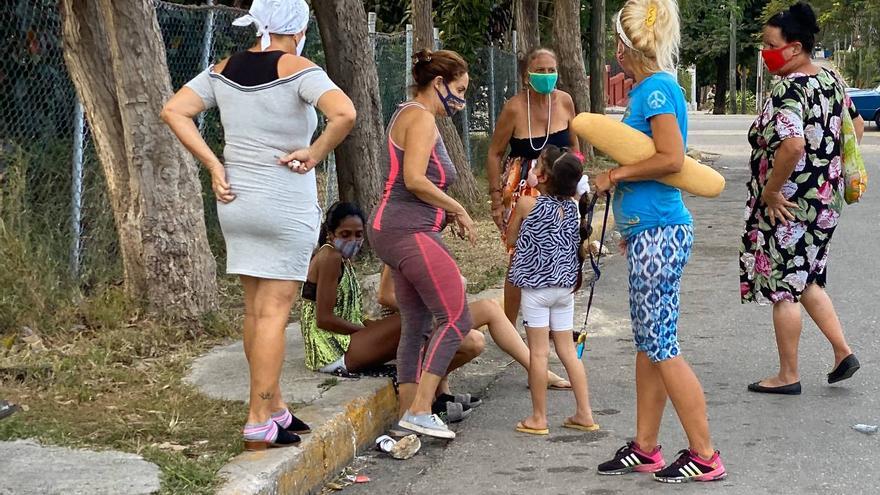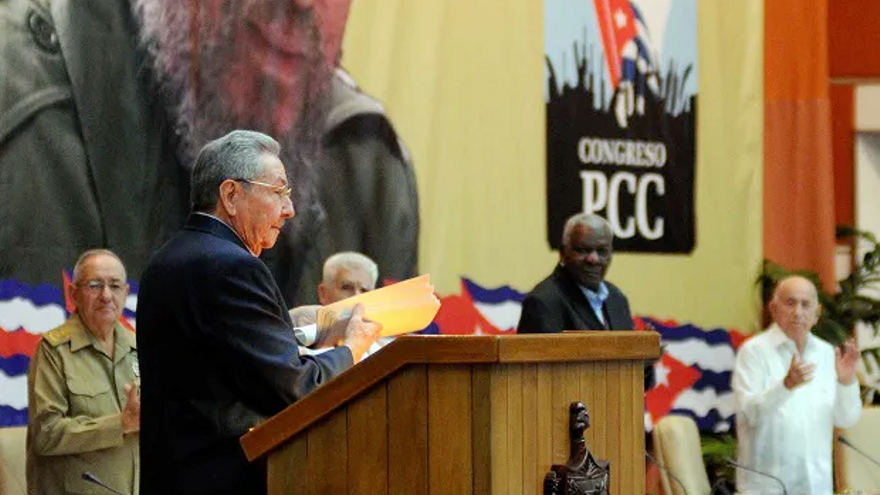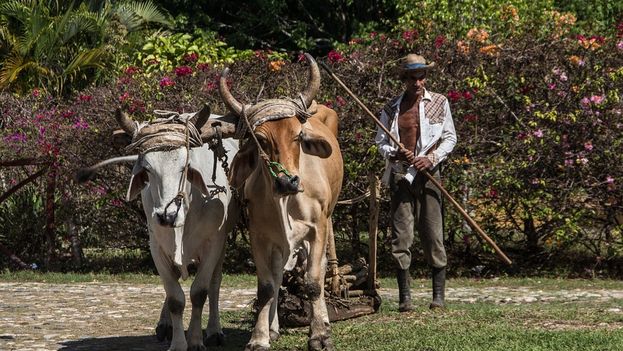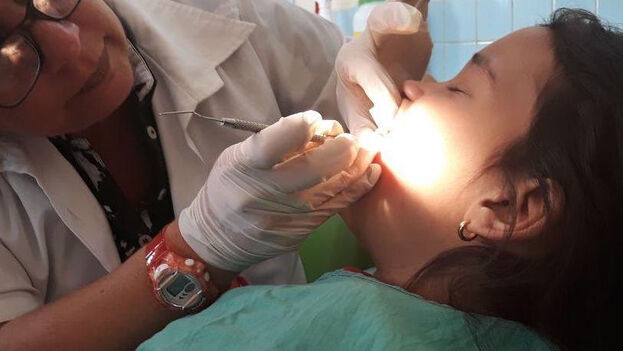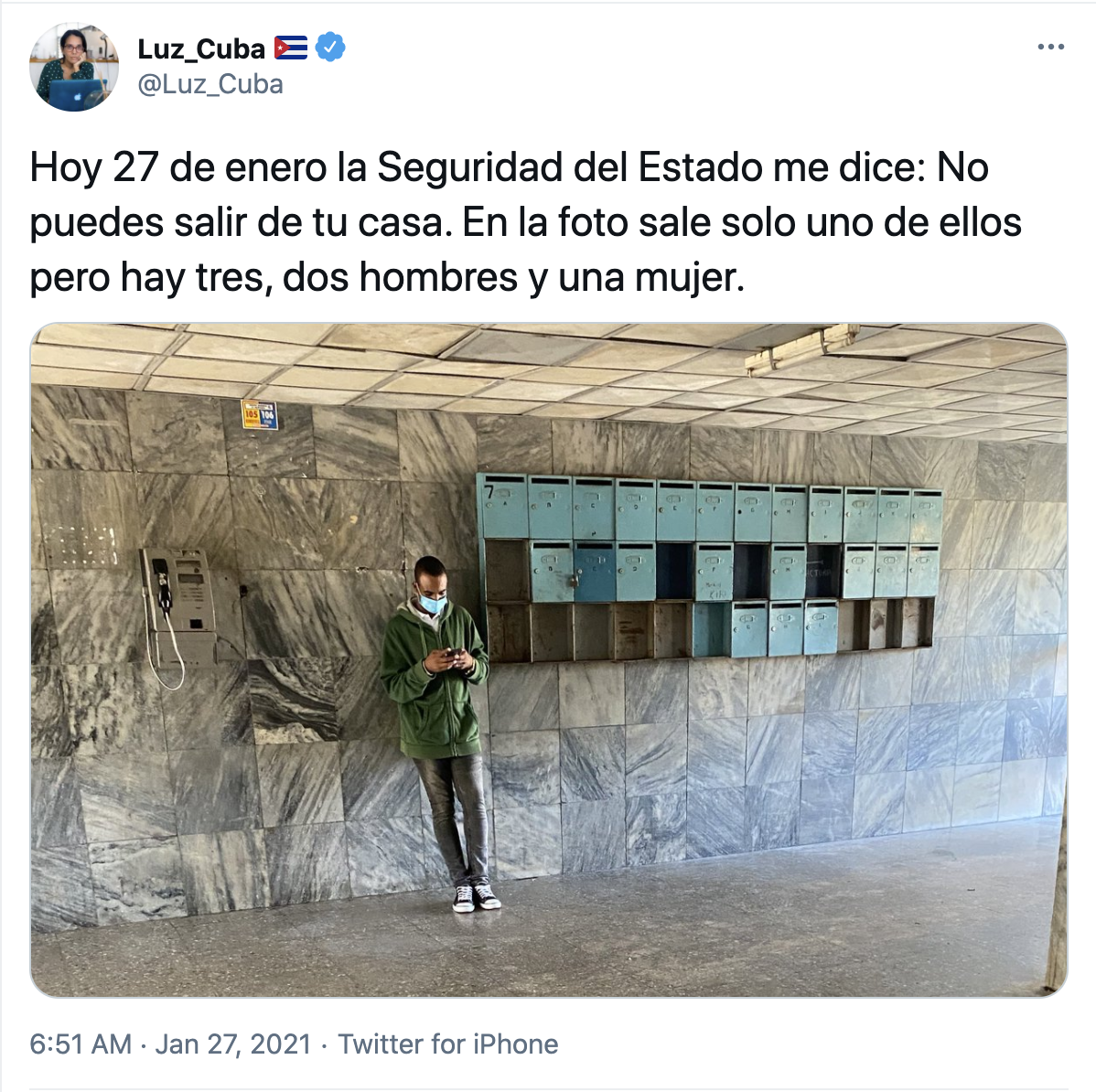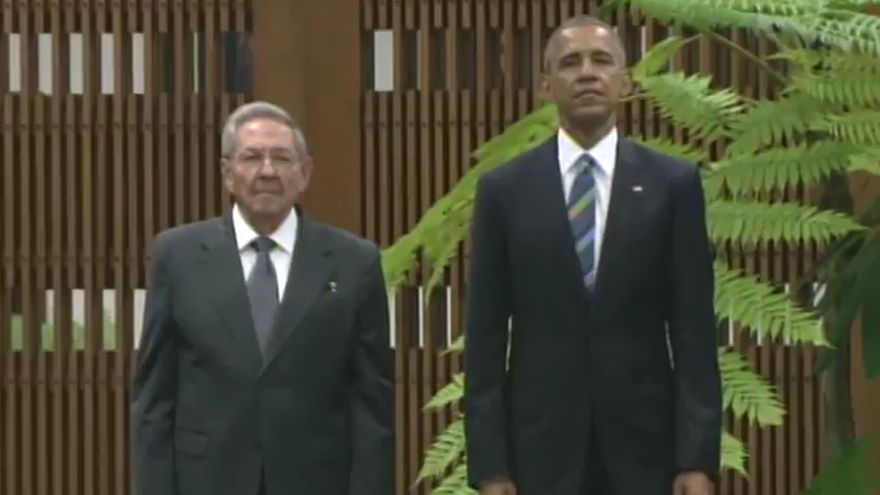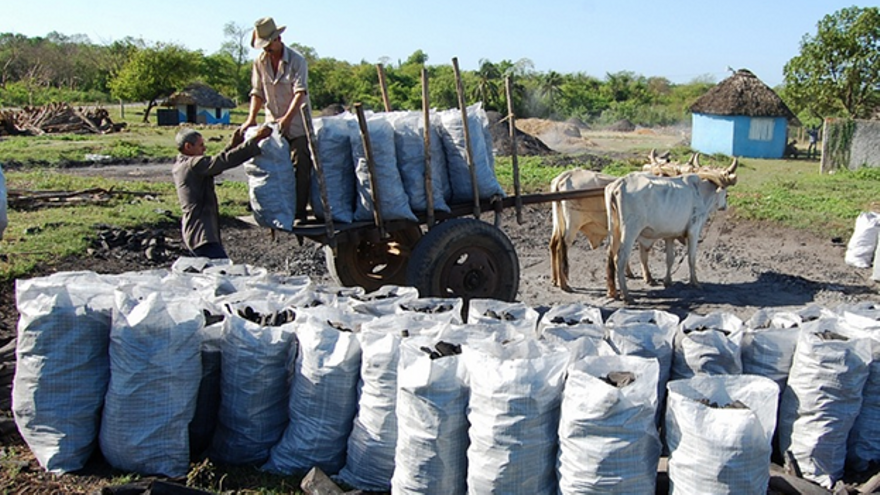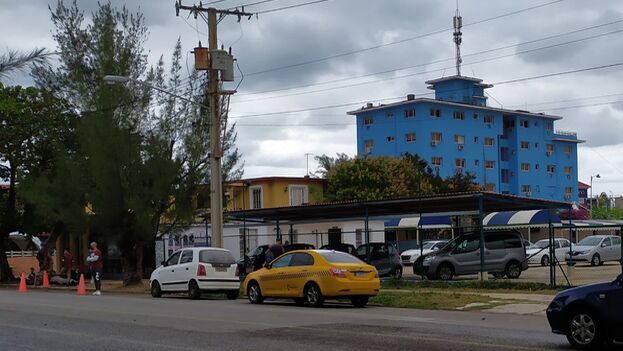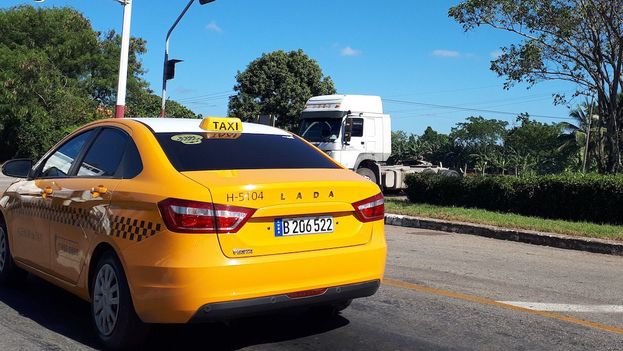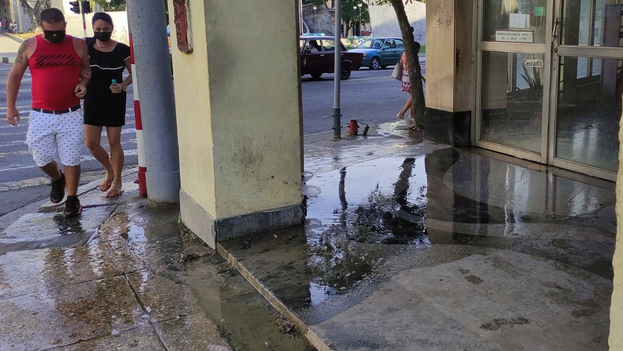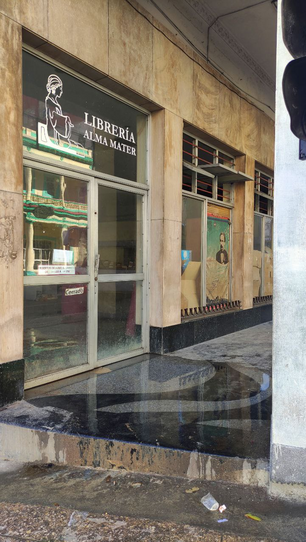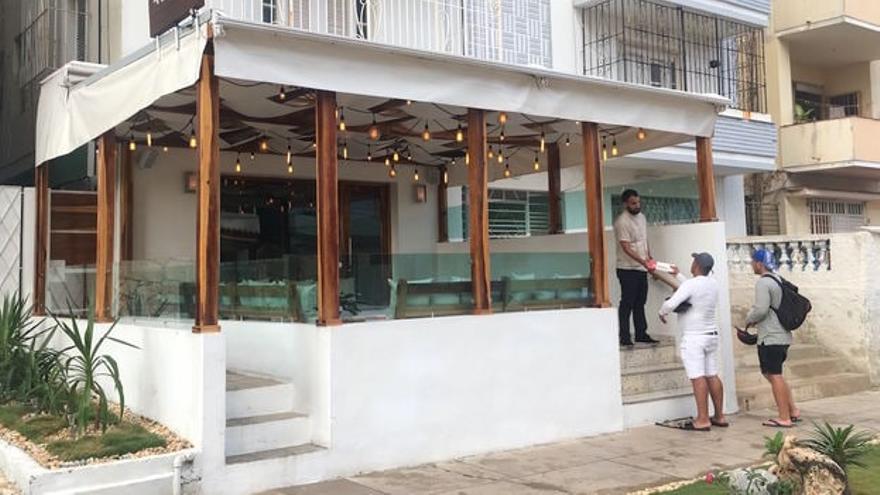
![]() 14ymedio, Luz Escobar, Havana, 28 January 2021 — Mauricio Mendoza still does not understand what he did to make the Minister of Culture, Alpidio Alonso, slap him and, with it, unleash the fury of a mob that came out of their offices and attacked artists who had arrived at their doors after performing a tribute to José Martí this Wednesday. “I was doing my job, reporting live, without offending anyone, asking Fernando Rojas questions,” he tells 14ymedio.
14ymedio, Luz Escobar, Havana, 28 January 2021 — Mauricio Mendoza still does not understand what he did to make the Minister of Culture, Alpidio Alonso, slap him and, with it, unleash the fury of a mob that came out of their offices and attacked artists who had arrived at their doors after performing a tribute to José Martí this Wednesday. “I was doing my job, reporting live, without offending anyone, asking Fernando Rojas questions,” he tells 14ymedio.
Vice Minister Rojas, a character at the meeting on November 27th with some thirty of the more than 300 artists gathered before the Ministry of Culture, had already gone out several times to speak with the group, made up of twenty artists, including Julio Llopiz-Casal, Solveig Font, Maykel Osorbo, Carolina Barrera and Reynier Leyva Novo.
In some of the released videos, Rojas can even be seen stating that they could enter the ministry but without cell phones. The young people refused and demanded, at the same time, the withdrawal of the police officers who surrounded them, so Rojas turned around and went back into the building. continue reading
Suddenly, Mendoza remembers, “everyone comes out”: not only Rojas, but Minister Alonso himself and other officials. “One by one, I began to introduce who they were for the live broadcast, and I didn’t finish the first sentence when he slapped me and that triggered everything. A mob came out of the ministry and came at us”.
The 22-year-old independent journalist, who was also present at the Ministry on November 27th, asserts that “it was a low blow”. The minister even called him “a girl” because of his long hair. “The campaign has been brutal, they said that the minister approached me to shake my hand. A crude excuse they are using, they think we are little children,” criticizes the young man, who thinks that Alpidio Alonso “is nothing more than a joke.”
For Novo, it was incredible to see “that group which included a Minister, Vice-Ministers and officials acting like they were the police, beating, pushing, overwhelming a group of peaceful young people”
Reynier Leyva Novo, another of those attacked, simply cannot believe it. “The reaction of that group that included a Minister, Vice-Ministers and officials, acting as if they were the police, beating, pushing, overwhelming a group of peaceful young people in front of their institution …”, he explains. “That was a shock to me”.
Solveig Font is of the same opinion. Initially, she was speaking on her phone, on the side, and only felt a growing noise. “I see a horde, the fury of the Minister and the Vice-Minister coming up on us, pushing Mauricio”. Font recalls that she and Julio Llopiz-Casal tried to separate the Minister and the Vice-Minister and another official, whom everyone calls Chicho, and said to Alpidio Alonso: “Minister, calm down, calm down”, at the same time she joined in separating them.
Novo hardly managed to press his camera’s shutter, but he did take two photographs, the graphic testimony of a Cuban Minister of Culture throwing himself on top of a peaceful citizen. Immediately, he received “strong shoves against the crowd” to get on a bus, arrested. Font describes them as “Old people, their gray hair nicely done, new glasses, new shirts, pushing us…”
In front of Novo were other officers pushing Oscar Casanella, but the door was blocked. “He was reluctant to get on the bus, and while the State Security agent beat him, Oscar looked him in the eye and told him that he was not going to get on.” Up until that moment Novo had not resisted because they had not hit him yet, but as soon as he got up, he received a blow from behind in the lower part of the head.
“It was a very strong blow that knocked my hat off. When I looked back, several people were screaming and what I remember the most, which keeps coming back to me, were Camila Lobón and Celia González screaming while they were being strangled”.
The screams and blows inside the vehicle were recorded in audios and videos recorded by the artists themselves.
The situation was so violent that Font thought they were going to break a bone. They threw her against the step of the bus and put pressure on her body. “The first thing I saw when I looked up was an older person from State Security who gave Chino Novo a tremendous blow on his head from behind. Then I fainted, I couldn’t take any more”, she recounts.
The situation was so violent that Font thought they were going to break a bone. They threw her against the step of the bus and put pressure on her body
Before the bus started, the artists saw through the window the faces of Fernando Rojas and Alpidio Alonso who, together with the Ministry workers, shouting slogans while they held a Cuban flag.
Julio Llopiz-Casal’s feelings are contradictory, because he believes in dialogue, but at the same time he’s filled with “deep disappointment… I am getting closer and closer to thinking that dialogue is not going to happen”, he confesses, “especially because they don’t want it to happen, because they are looking for all the excuses in the world to obstruct it”.
Llopiz sees it as a shame that Cubans and the entire international community have seen the Minister of Culture behaving “like a common criminal… It seems to me that it is essential that Alpidio Alonso be separated from his duties”, he believes. “He should resign if he had a little dignity”.
For the art historian Carolina Barrera, what happened this Wednesday is “so extremely severe that it calls into question not only the legitimacy of the Government, but its power to exercise its functions, its sanity… The Ministers and Vice-Ministers are public officials, and as such, they are indebted to the citizens. How is it possible that a Minister of Culture and his entourage of Vice-Ministers lash out with violence against young people who read poetry, against citizens whom they should serve?” he wonders, in puzzlement.
What happened, she says, “is unacceptable” but, above all, “illegal”: “A punishable act that in any part of the world would be sufficient reason not just for immediate dismissal or resignation, but for criminal prosecution”.
Translated by Norma Whiting
____________
COLLABORATE WITH OUR WORK: The 14ymedio team is committed to practicing serious journalism that reflects Cuba’s reality in all its depth. Thank you for joining us on this long journey. We invite you to continue supporting us by becoming a member of 14ymedio now. Together we can continue transforming journalism in Cuba.

